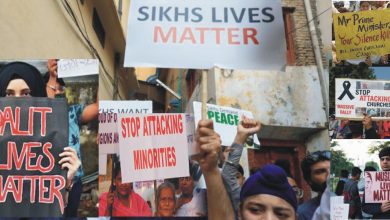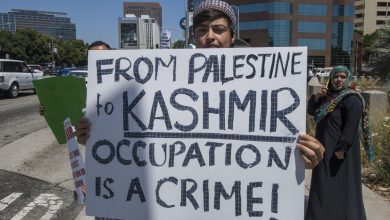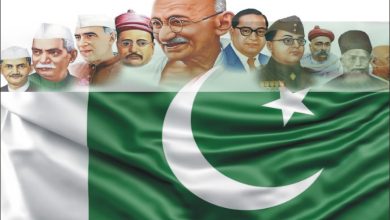Report highlights India’s systematic genocide and ethnic cleansing in IIOJK
 Islamabad: In a comprehensive analysis, Advocate Nasir Qadri, the Executive Director of ‘Legal Forum for Kashmir’ (LFK), has documented India’s institutionalized and systematic discrimination against Kashmiris, framing it within the context of genocide and ethnic cleansing as defined by international law.
Islamabad: In a comprehensive analysis, Advocate Nasir Qadri, the Executive Director of ‘Legal Forum for Kashmir’ (LFK), has documented India’s institutionalized and systematic discrimination against Kashmiris, framing it within the context of genocide and ethnic cleansing as defined by international law.
The report delves into the examination of laws, policies, and practices recently introduced in the wake of implementation of settler colonialism agenda, specifically aimed at altering the demography of the Muslim-majority territory.
Advocate Jalil Andrabi, Chairman of the ‘Kashmir Commission of Jurists,’ who was arrested by Indian army’s 35th Rastriya Rifles on March 8, 1996, and three weeks later, his dead body was found floating in the river Jehlum, had said that “The judiciary is working under great strain in [occupied] Jammu and Kashmir. The judges who try to dispense justice impartially are either transferred to distant states in India, forced resignations, or denied due promotions.
 The report emphasizes the absence of minimum standards for the respect of fundamental rights and dignity of detainees in Kashmir. It says that India has passed laws empowering its military and paramilitary forces to act against Kashmiris, violating international standards. These laws purportedly legalize arbitrary arrests, destruction of property without warrants, bypassing the application of international humanitarian law.
The report emphasizes the absence of minimum standards for the respect of fundamental rights and dignity of detainees in Kashmir. It says that India has passed laws empowering its military and paramilitary forces to act against Kashmiris, violating international standards. These laws purportedly legalize arbitrary arrests, destruction of property without warrants, bypassing the application of international humanitarian law.
Blacks laws such as the Public Safety Act’ (PSA) and Armed Forces Special Powers Act (AFSPA) are cited as examples of laws granting sweeping powers to detain civilians without trial, engage in searches without warrants, and even use lethal force, all with immunity from prosecution for the armed forces.
The report brings attention to political prisoners such as Masarrat Aalam Butt and Shabbir Ahmed Shah, who have spent decades in Indian jails without being convicted of crimes. It also highlights the black law ‘Unlawful Activities (Prevention) Act’ (UAPA), criticized as a tool for suppressing dissent, and instances of individuals like Khurram Parvez facing prolonged detention without bail.
The laws and actions described in the report are asserted to violate international standards, including articles 9 and 14 of the International Covenant on Civil and Political Rights (ICCPR). They are seen as contradictory to United Nations principles ensuring the rights of detained persons to prompt hearings, legal counsel, and communication.
The report aims to draw attention to a dire human rights situation in Kashmir, prompting further scrutiny and global awareness of the violations occurring in the region. KMS-11K








